SUMMARY
This is AI generated summarization, which may have errors. For context, always refer to the full article.

China’s recent passage of a new law allowing its Coast Guard to use force against foreign vessels in waters it claimed has dwindled hopes for a successful oil and gas cooperation between Manila and Beijing, said retired Supreme Court justice Antonio Carpio.
“The casualties of the new Coast Guard law are the Code of Conduct and the MOU-TOR (Memorandum of Understanding-Terms of Reference),” Carpio told Rappler.
Carpio, a staunch defender of the West Philippine Sea, had earlier expressed support for the MOU and TOR on oil and gas cooperation signed by the two countries in 2018.
He pointed to it as a possible “solution” to the South China Sea dispute since the setup utilizes the Philippine government’s service contract system, which ensures Filipinos’ sovereign rights in the West Philippine Sea are preserved.
Hardening stance
But with China’s Coast Guard law, Carpio assessed that Beijing’s position on its claims is hardening, making it more difficult for a deal where the service contract system of the Philippine government would be observed.
“With the new Coast Guard law, China has reneged on its commitments under the MOU and TOR,” he said.
Joint exploration done under the service contract scheme had been Carpio’s condition for oil and gas activities in the West Philippine Sea.
The retired justice, who was among the legal minds behind the Philippines’ 2016 arbitral award against China, asserted that observing the service contract system is crucial because it is the only way for the Philippines and other claimant states “to justify to their people that their governments are not ceding their sovereign rights to China.”
Since 2018, the Philippines and China have formed committees and working groups to discuss potential areas in the West Philippine Sea where oil and gas activities could be carried out. But over two years since then, both governments have yet to finalize proposed areas for exploration.
‘No effect at all’
Despite this, Foreign Secretary Teodoro Locsin Jr said China’s Cost Guard law should have no effect on possible oil and gas activities eyed with Beijing.
“It doesn’t affect it at all because the whole purpose of the joint exploration under the memorandum of understanding on oil and gas is that we are able to move forward. They have resources we don’t have. We have resources they obviously don’t have because it’s in our EEZ,” Locsin said in an ANC Headstart interview on Monday, February 8.
“We can move forward,” he added.
Locsin said officials from both sides are in discussions over how to move forward “without either side saying effectively you’ve given up your position or even a fraction of it.”
On this issue, the Philippines foreign affairs chief said he added a clause in the agreement between the two countries “where it says not only that it is in terms of a written agreement but any act, any transaction, any event where one seems to be relying on the other, none of that can ever be raised by either party – either to advance its claim or to defeat the other’s claim.”
“With that kind of precision which I am very well capable, we’re moving forward,” Locsin said. – Rappler.com
Add a comment
How does this make you feel?
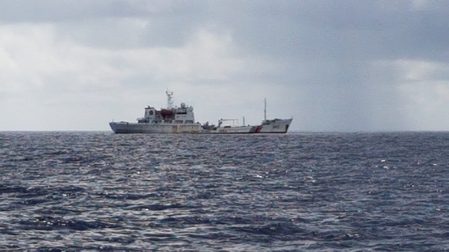
![[WATCH] Carpio on People’s Initiative: ‘Nothing to do with economic provisions’](https://www.rappler.com/tachyon/2024/02/RetiredJusticeCarpio_Cebu_February202024-1-scaled.jpg?resize=257%2C257&crop=767px%2C0px%2C1372px%2C1372px)

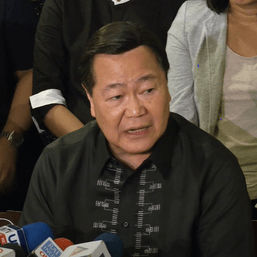

![[WATCH] Carpio on why PH claims over Bajo de Masinloc, Spratlys are ‘strongest’](https://www.rappler.com/tachyon/2023/10/carpio-wps-livestream-ls-2-1.jpg?resize=257%2C257&crop_strategy=attention)

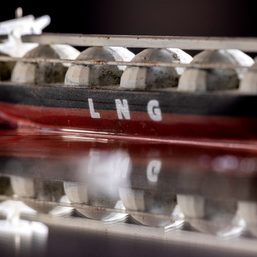
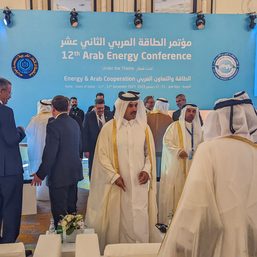



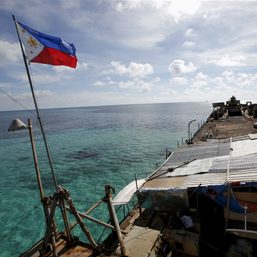
![[Vantage Point] Xi’s flotilla blocks energy development in South China Sea](https://www.rappler.com/tachyon/2024/04/china-aggression.jpg?resize=257%2C257&crop=442px%2C0px%2C1080px%2C1080px)
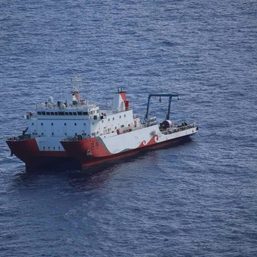
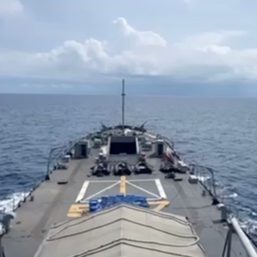
There are no comments yet. Add your comment to start the conversation.